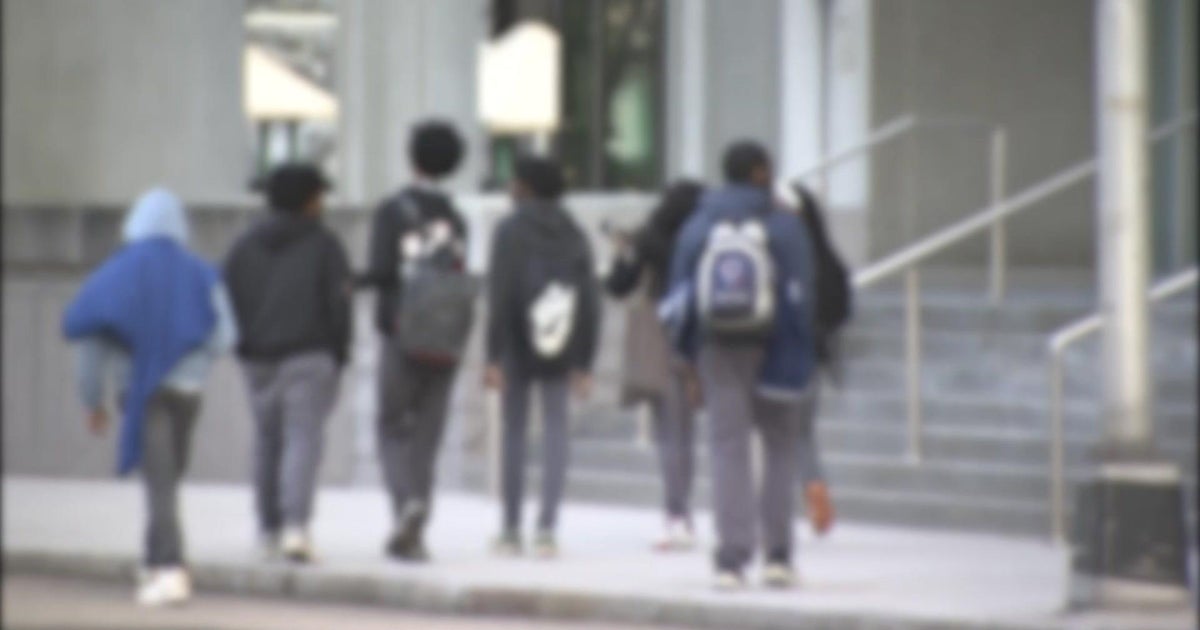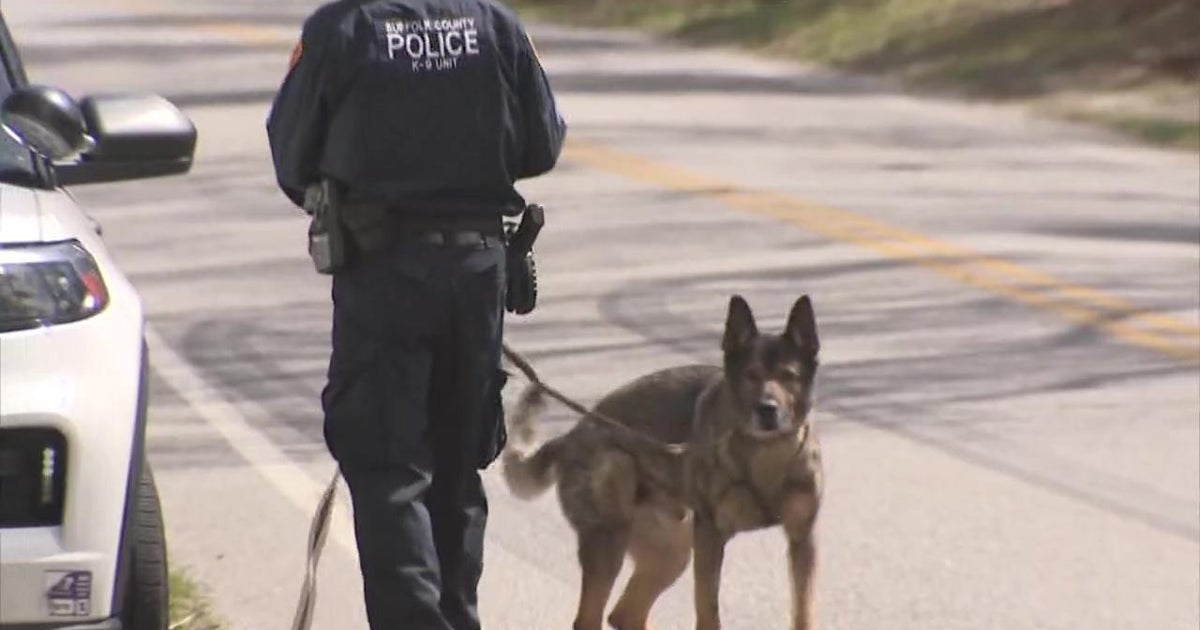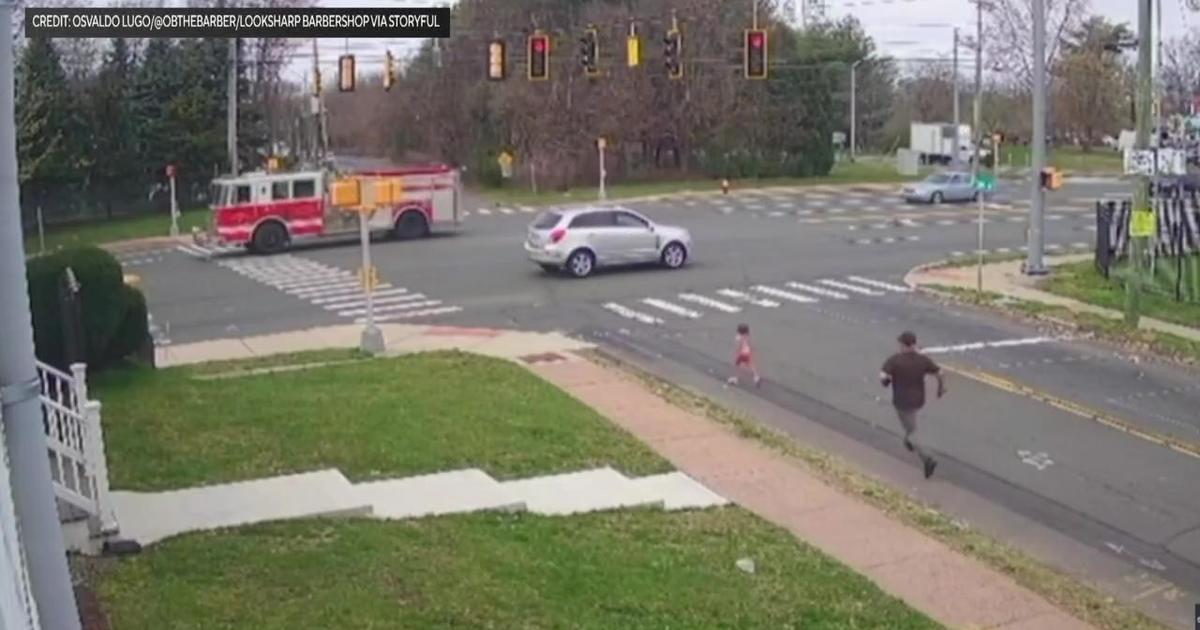Immigrant Children Face Uncertain Future In Courts
HUNTINGTON STATION, N.Y. (CBSNewYork/AP) -- On a recent breezy summer day, 7-year-old Kevin Torres played soccer with his neighbors in the front yard of his two-story home on Long Island as his mother watched nearby.
It's a typical suburban sight, but not for Briseida Flores, who had been separated from her son for most of the boy's life until he crossed the U.S.-Mexico border in May with the help of a smuggler who crossed the Rio Grande River with Kevin strapped to his back.
"I decided to bring him. I missed him so much," said Flores, a legal resident. Flores, who saved up $2,800 working at a purse factory in Huntington and arranged for a distant cousin back home to take the boy to Mexico and hand him off to a "coyote," or smuggler.
"I would pray to God each day: 'My son is in your hands,' I would say,'' said Flores.
But Kevin could be forced to return to El Salvador. He is one of approximately 57,000 unaccompanied minors who have illegally crossed U.S. borders from Central America since last October. Since then, 4,244 of those minors have made New York their home, the largest number outside of Texas. Metropolitan New York cases are being handled by the federal Immigration Court in New York City, which is struggling to allocate resources, including pro bono lawyers.
Kevin lives in a two-story colonial divided into four different units rented by immigrant families from various Central American countries. Three other minors there arrived under similar circumstances: Yennifer Licona, 13, from Honduras, and sisters Maria, 9, and Jolleth Ruiz, 8, from Nicaragua, also crossed the border in the last year to reunite with their families.
"We had to send for our children. They were suffering over there," said Yennifer's mother, Paola Flores, 35, who crossed the border in 2004 and was arrested, but skipped her court appearances to avoid deportation. "There are so many problems with the gangs and the crime back home in San Pedro."
It is not uncommon for Central American parents to leave their children behind at a young age with other family to come work in the U.S. The adults usually make their way to a place where they already have relatives and what money they make is sent back home to provide for their children and aging parents.
When Tania Meza and her husband left Maria and Jolleth behind seven years ago, she crossed the border carrying a Bible with their pictures inside. But when her mother became ill and no one was able to watch them, she said the girls began to suffer.
It took her six months to get the $11,000 she needed to pay the smugglers -- behind the back of husband, who feared the girls having to experience the same difficult, dangerous border crossing as their parents -- and the family was reunited last June.
But the journey only begins after crossing the border. According to U.S. Department of Health and Human Services, 54,677 minors nationwide have been released to sponsors or family members -- who make themselves responsible for the children -- since the beginning of this year. Children crossing the border alone, under law, must receive a court date within 21 days of identification by authorities.
"I'm not sure how our process at court will end," Meza said in Spanish. "We've already had three court dates, and they keep extending it. It would be difficult to return to Nicaragua and not be able to survive."
Meza and Paola Flores say they plan to go back with their daughters if they're deported.
Neena Dutta, an immigration attorney and the president of the American Immigration Lawyers Association New York chapter, said that because the minors crossing the border are often escaping gang violence and crime, the majority of them are eligible for aid and may be able to stay.
"They're desperate for their lives," she said. "Nobody walks through a desert just because they feel like going to a new place."
Yennifer's next court appearance is slated for November, and the Ruiz sisters have one scheduled for December.
"I have full faith in God," Meza said. "If he wants us to stay, we'll stay. If he wants us to go, we'll go."
According to figures released last month by the U.S. Office of Refugee Resettlement, Suffolk County
Government figures released last month show that more than 2,200 immigrant children detained at the border are now on Long Island.
With 1,181 of the children placed there, Suffolk County ranks third in the nation. Nassau County, with 1,096 kids, ranks fifth, according to the U.S. Office of Refugee Resettlement.
You May Also Be Interested In These Stories
(TM and © Copyright 2014 CBS Radio Inc. and its relevant subsidiaries. CBS RADIO and EYE Logo TM and Copyright 2014 CBS Broadcasting Inc. Used under license. All Rights Reserved. This material may not be published, broadcast, rewritten, or redistributed. The Associated Press contributed to this report.)



